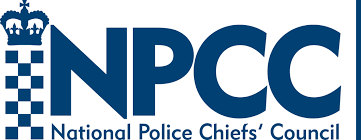Practitioners communication guide
It's not just ASB: Why language matters when supporting victims
Anti-social behaviour (ASB) can appear to be everyday nuisance to some – but for those living through it, the impact is often profound and deeply distressing. It can disrupt sleep, create anxiety and fear, isolate victims from their support network, and affect mental wellbeing. Yet too often, victims’ experiences are minimised with phrases like “it’s just low-level” or “there’s nothing we can do.”
That’s why we’ve developed a new guide specifically for practitioners working with victims of ASB. Our guide is designed to help you communicate in ways that validate experiences, build trust, and empower victims — because the words we use truly matter.
Why we created this guide
This guide stems from conversations with victims and frontline practitioners alike. From our years of experience working directly with victims, they often share how dismissive language used by practitioners left them feeling unheard. Practitioners have told us they wanted clear, practical advice on what to say – and what to avoid – to better support victims and avoid unintentionally causing harm.
Then, a conversation between Jo Grimshaw and our Deputy CEO Charlie, sparked the creation of this guide.
Current approaches often focus on what to do to resolve ASB but say less about how to talk about it with sensitivity and respect. So, this guide aims to fill that gap.
What you’ll find inside the guide
Our guide offers clear alternatives to common phrases that can feel dismissive or invalidating. For example:
- Instead of saying, “It’s not a police matter,” try, “The police may not be able to take action right now, but we’re still here to support you and explore other options.”
- Rather than, “You’re the only one complaining,” say, “Your experience matters and it’s important that you’ve come forward.”
It also covers harm-focused communication, ways to gently signpost victims to mental health services, and strategies to avoid passing people from agency to agency without support.
The words practitioners use shape how victims feel about their situation and the help they receive. When someone is already feeling vulnerable, being told their concerns are “just low-level” or “paranoia” can retraumatise and discourage them from seeking help again. Conversely, validating language fosters trust, encourages openness, and strengthens the support network around victims.
As one victim told us, “If the police had communicated better and with more reassurance they were taking the matter seriously this wouldn’t have happened. They need to understand that the daily threat of vile behaviour has a massive effect on mental health.”
This resource is for anyone working directly with victims of ASB:
- Housing officers
- Community safety teams
- Police community support officers
- Local authority staff
- Voluntary sector practitioners
Whether you’re new to the sector, or just want a refresher, this guide is designed to make your conversations more empathetic and effective.
We encourage teams to integrate the guide into their training, use it as a quick reference during calls or visits, and discuss it in supervision sessions. It’s a living tool — one we hope to adapt and receive feedback on as you use it.
Our CEO, Harvi, states:
“We have produced this practitioner guide to raise awareness – that language matters when we are responding to victims of ASB. A good start is understanding the harm that the ASB is causing the victim. This guide will help you to be mindful about the language you use when communicating with individuals experiencing anti-social behaviour”.
What do victims of ASB think about this guide?
We linked in with our Lived Experience Focus Group to ensure our guide reflected real experiences. Here is what some of our group members thought:
“It’s brilliant! Well done – yes, I felt completely dismissed by police especially- who didn’t seem to know how bad it is.
The guide covers everything in detail exactly right and all instances are serious and should be considered as such and taken seriously immediately in my opinion- it’s the worst type of community destruction and has a huge negative impact on everyday life and you are constantly in fear of what they will do next etc.”
“This is good.
Reading through the draft was like reading my experience with my housing association relayed back to me, phrase by over-familiar phrase.
It is precise and helpful.”
“The guide offers some helpful advice, especially around the importance of listening and clear communication.
Thanks again for including my perspective it means a lot.”
Partner feedback
“At Resolve we know that frontline professionals shape how victims experience support and recovery. This guide equips practitioners with trauma-informed language and approaches that foster trust and open dialogue.”
Resolve
“Victims of ASB often tell us it’s not just what happened that stays with them, but how they were treated. This guide helps everyone in the sector to be aware of – and ensure that our words do justice to the people we’re here to support.”
Green & Burton ASB Associates
Join us in changing the narrative!
Small changes in language can lead to big improvements in how victims feel supported. We invite you to download the guide, share it with your colleagues, and reflect on how you communicate with those affected by ASB.
Together, we can ensure victims feel heard, respected, and empowered — because it’s never just ASB.
We want to say a big thank you to all the victims and practitioners who have contributed to the creation of this guide. Your support and insight allows us to continue championing the victim’s voice!



